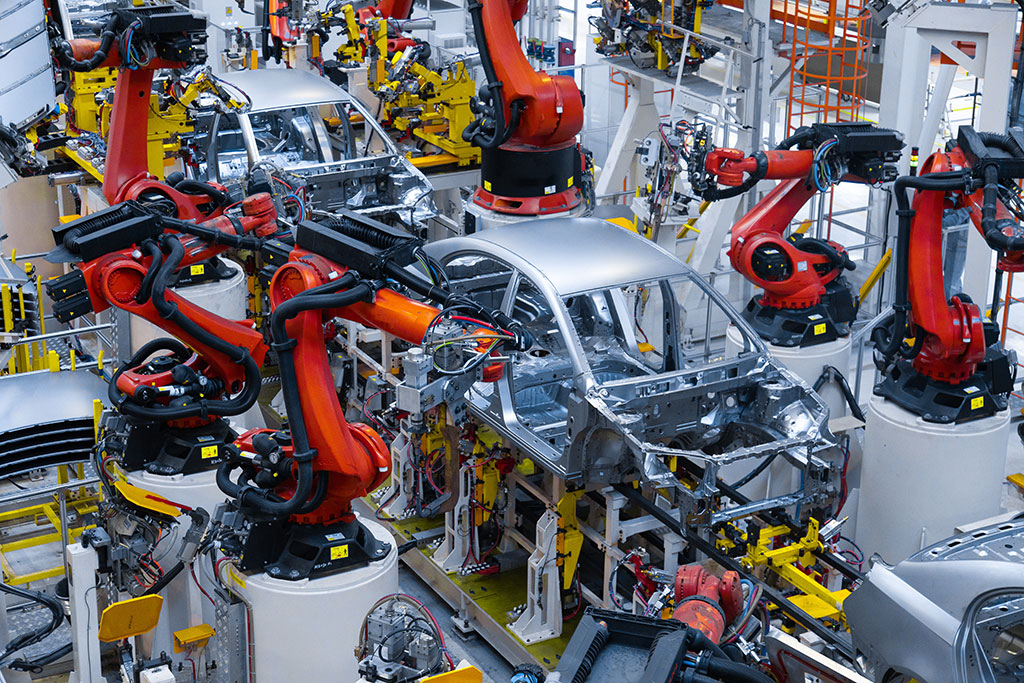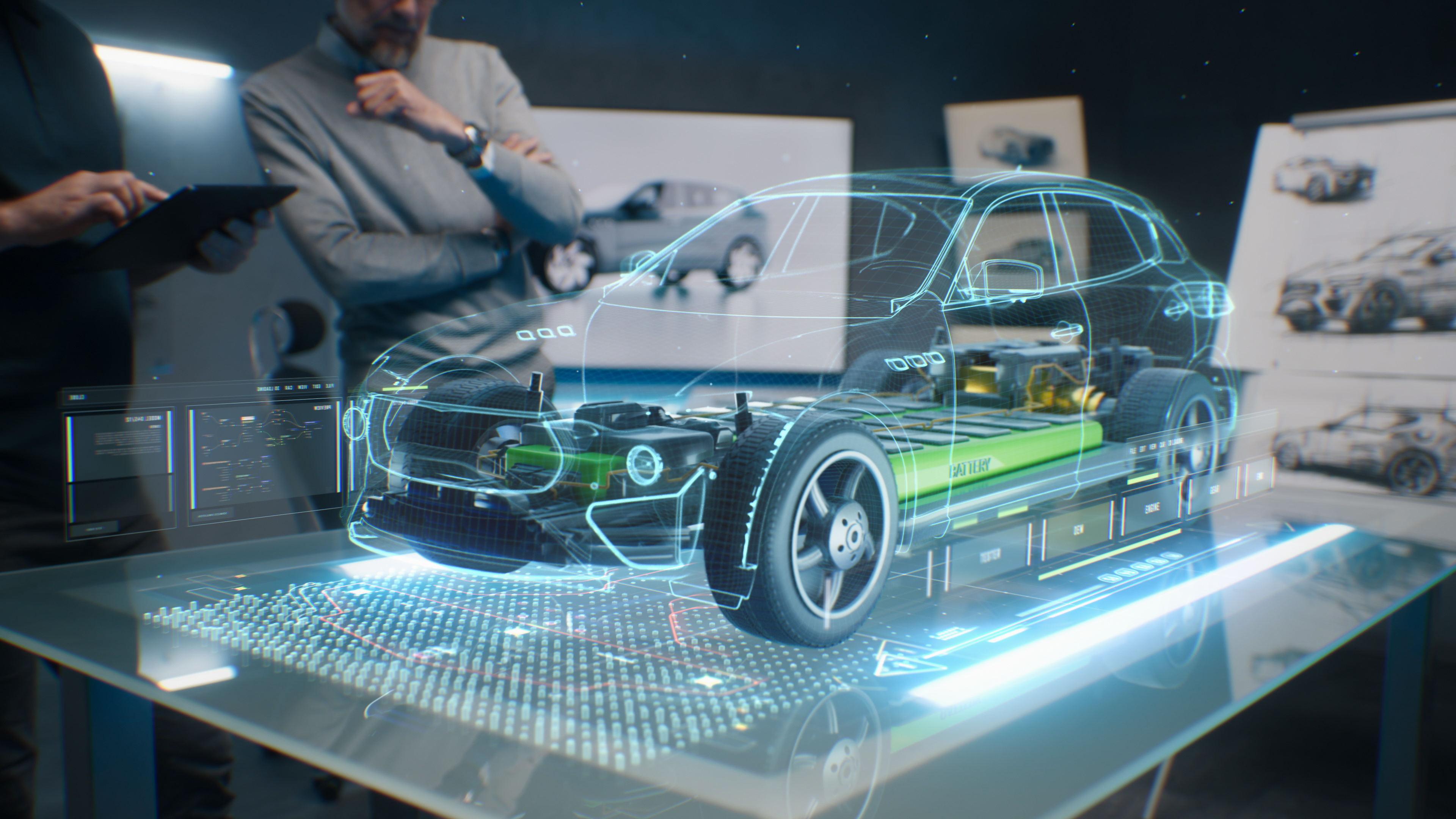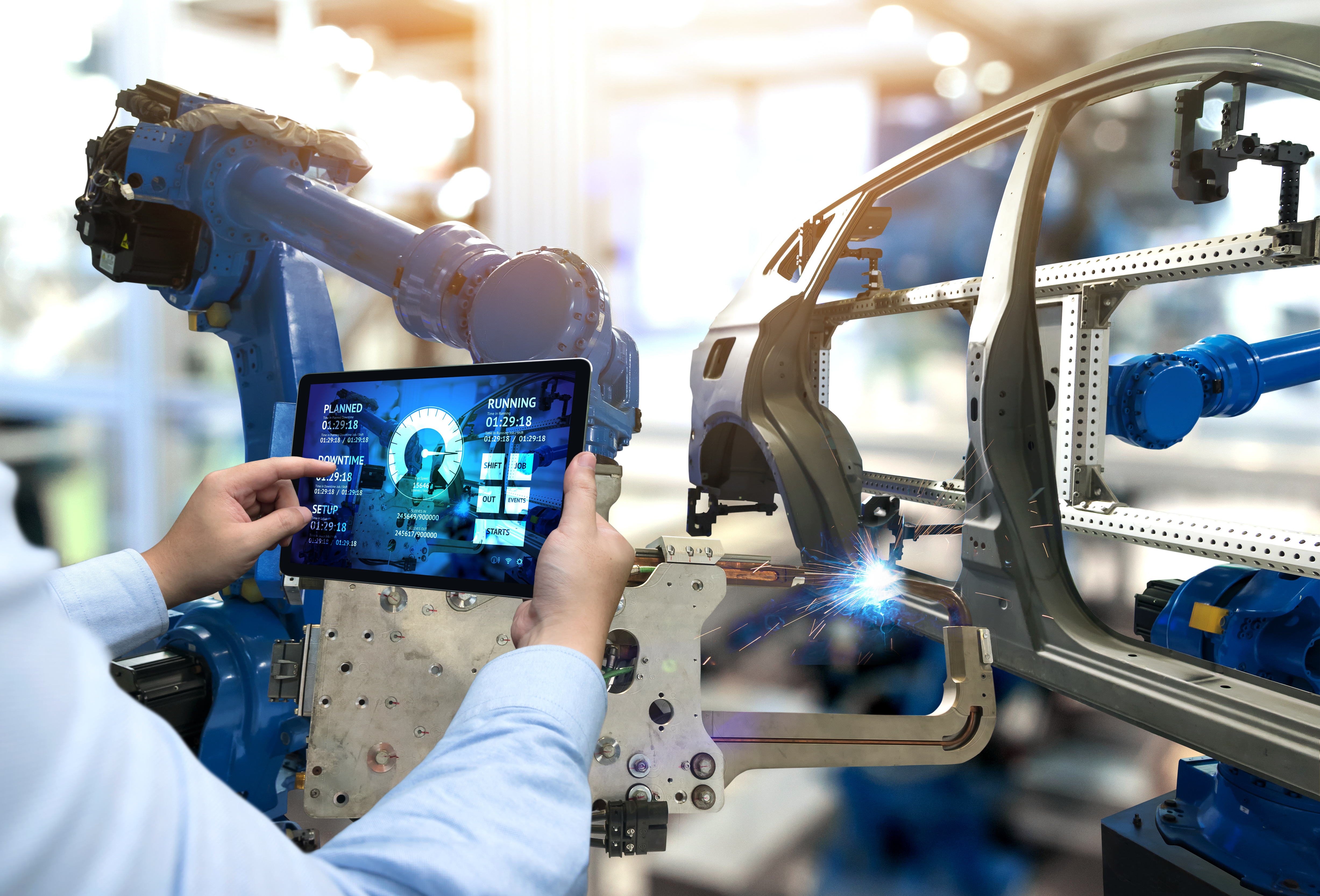Automotive

Digitalization in the automotive industry: Opportunities and security requirements
Digital transformation is shaping the automotive industry at an unprecedented pace. Networked development processes, AI-supported simulations, digital twins, and data-driven decisions are driving innovation—from vehicle development and production optimization to new mobility services. Information technology is the key to managing complex value chains, connecting international locations, and efficiently organizing close cooperation between OEMs, suppliers, and partners.
A key success factor is the integration of diverse systems and platforms – from classic IT infrastructure to specialized development and simulation environments to production and test systems. This networking enables greater speed, flexibility, and innovative strength. At the same time, new vulnerabilities arise, especially where highly sensitive data such as vehicle simulations, prototypes, control software, or confidential development projects are processed.
To reliably exploit this potential, the heterogeneous requirements of automotive IT must be bundled into a comprehensive security concept. While particularly critical areas—such as vehicle safety data, software updates, or intellectual property—require the highest standards of confidentiality, integrity, and traceability, the focus in traditional IT is more on scalability, collaboration, and international networking.
Sources of danger in the automotive sector
Source: Statista | Upstream-Report | B2B Cyber Security | Upstream-Analyse
IT security in the automotive industry – challenges and added value

Secure IT networks for the automotive industry
Automotive manufacturers, suppliers, and development centers are driving the transformation of mobility—from electromobility and autonomous driving to connected vehicles. This generates highly sensitive development and production data, the protection of which is crucial for innovation, trust, and competitiveness. At the same time, the industry is an attractive target for cyberattacks such as ransomware, phishing, industrial espionage, and sabotage. To counter these risks, ARP-GUARD offers a specialized network security solution that enables transparency, control, and protection across heterogeneous IT and OT landscapes.
Challenges in the automotive industry
- Heterogeneous IT and OT landscapes: Modern production facilities often work with older machines that do not meet current security standards.
- Networked vehicles and systems: Control units, over-the-air updates, and cloud platforms increase the attack surface.
- Protection of IP and production data: Design plans, software, and prototypes must be consistently protected against industrial espionage.
- Regulatory requirements: TISAX, ISO 27001, and industry-specific standards require documented security concepts.
- Supplier and partner networks: Global supply chains require secure and controlled data exchange.
- External service providers & development partners: Temporary access by engineers, start-ups, or third-party providers represents potential gateways.

Growing threats
- Ransomware & industrial espionage: Attackers target design plans, patents, and production data.
- Sabotage & production downtime: Compromised IoT devices or manipulation can shut down entire production lines.
- Phishing & social engineering: Employees and external partners are targeted in order to gain access to sensitive systems.
Added value for the industry
With ARP-GUARD, companies in the automotive industry are creating a new level of network transparency – the basis for:
- Securing development and production data
- Protection against targeted attacks, manipulation, and espionage
- Compliance with regulatory requirements
- Trust-based collaboration with partners, suppliers, and external developers
The solution is flexibly scalable, seamlessly integrable, and equally suitable for OEMs, suppliers, and development centers.




